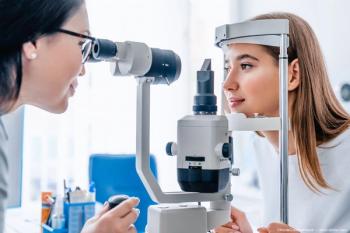
Stealth BioTherapeutics sees last patient complete treatment in Phase 2 geographic atrophy clinical trial
According to the company, it is developing elamipretide for treatment of extra-foveal GA under U.S. FDA Fast Track designation.
Stealth BioTherapeutics Corp announced today that the final patient in its clinical trial for extra-foveal geographic atrophy (GA) associated with dry age-related macular degeneration (AMD) has completed treatment.
According to the company, it is developing elamipretide for treatment of extra-foveal GA under U.S. FDA Fast Track designation.
A deficit in vision under low light conditions, such as at dusk, during nighttime, or with artificial (indoor) lighting, is often the first clinical symptom of dry AMD, in which irreversible and progressive death of retinal pigment endothelial cells (GA progression) can eventually lead to blindness. Elamipretide previously demonstrated improvement from baseline in assessments of low-light visual function and a lower-than-expected rate of GA progression (relative to the natural history) after 24-weeks of elamipretide therapy in ReCLAIM, a Phase 1 clinical trial that enrolled 40 subjects with dry AMD.
The company noted that ReCLAIM-2 is designed to assess the safety and efficacy of elamipretide compared to placebo after 48-weeks of administration in 176 subjects with extra-foveal GA. ReCLAIM-2 will assess changes in low-luminance best-corrected visual acuity (LLVA) and in GA area measured by optical coherence tomography (OCT) as the primary endpoint family.
Moreover, the company noted that econdary and exploratory endpoints include changes in low-luminance reading acuity, best-corrected visual acuity (BCVA) and patient reported outcomes, GA progression measured by fundus autofluorescence, attenuation of the ellipsoid zone, which is the mitochondria-rich layer of the retina, and assessment of disease progression in the non-study eye.
According to the company, full enrollment was completed in February 2021 and the last patient completed the 48-week treatment period in February 2022. The subject database remains blinded with the current emphasis on confirmation of all data entered at study sites, as well as completion of source data verification in preparation of database lock. Topline results are anticipated during the second quarter of 2022, with full analysis to follow.
"We are extremely grateful to the patients whose participation in ReCLAIM-2 enabled our successful completion of this trial and we look forward to sharing our data during the second quarter of this year," Reenie McCarthy, CEO of Stealth, said in the news release. "There is a tremendous unmet medical need for therapies to address this devastating disease which leads to progressive vision loss in millions of elderly Americans.”
McCarthy said the company remains optimistic based upon its Phase 1 clinical data and increasing clinical evidence in the field that elamipretide may be able not only to slow the otherwise irreversible progression of extra-foveal GA but also to improve visual function and visual quality of life for affected patients
About Geographic Atrophy
Geographic atrophy (GA) is an advanced form of dry age-related macular degeneration (AMD), a leading cause of blindness. GA lesions affect the central portion of the retina, known as the macula, which is responsible for central vision. GA is progressive and irreversible, leading to central visual impairment and permanent loss of vision. Based on published studies, more than five million people have GA globally including an estimated two million people in the United States. There are currently no approved treatments for GA.
Newsletter
Don’t miss out—get Ophthalmology Times updates on the latest clinical advancements and expert interviews, straight to your inbox.





























